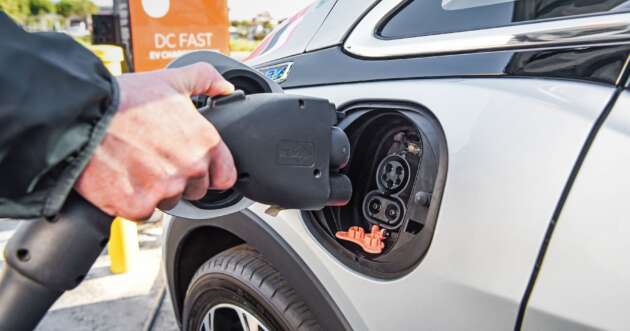Thailand plans to ban petrol, diesel car sales by 2035
Over the past year, there has been no shortage of activity regarding electrification coming from Thailand and Indonesia, with both countries highlighting their intent to embrace that path in strong fashion. That ambition has been outlined via plans for electric vehicle (EV) production to that of battery manufacturing and infrastructure development, made with great regularity.
The latest broadcast comes from Thailand, which says it is aiming to only sell zero-emission vehicles domestically from 2035. The intended move to go all-electric by then is very much aligned with the country’s plan to become a Southeast Asian hub for the production of EVs, Bloomberg reports.
That aspiration is not new. Last year, the country announced a policy aimed at making it an EV production base for the region within five years, and now, movement is being accelerated in order to gain high ground.
“We can see the world is heading in that direction, so we have to move quickly. We want to capture that growth post-pandemic, and we have the ambition to be the production centre because we already have the existing supply chains,” said Kawin Thangsupanich, an adviser to the energy ministry’s national policy committee.
The new plan also sets a target of having electric vehicles account for 50% of all new car registrations by the end of the decade, up from the 30% that was set previously, when the country announced its intention to build 750,000 EVs a year by 2030. That total includes commercial applications and two-wheelers.
Now that the country has set a target date for phasing out combustion-engine cars, the next step for the government will be to facilitate that transition. According to Kawin, this can be done by offering tax incentives, building out the appropriate infrastructure and developing regulations that promote EV manufacturing as well as incentivising consumers to buy such cars.
While full EVs currently make up less than 1% of cars in Thailand, the setting up of a deployment timeline is a necessary move to ensure that there is growth, according to Yossapong Laoonual, honorary chairman of the electric vehicle association of Thailand. ”If we let the EV adoption happen naturally, it could take too long. As a producer, setting a clear target makes the country more attractive for investment,” he explained.
Meanwhile, we continue to await our EV policy, the outline of which has been hinted at in the Low Carbon Mobility Blueprint revealed earlier this week.
The post Thailand plans to ban petrol, diesel car sales by 2035 appeared first on Paul Tan's Automotive News.
from Paul Tan's Automotive News
Read The Rest:paultan...




Post a Comment